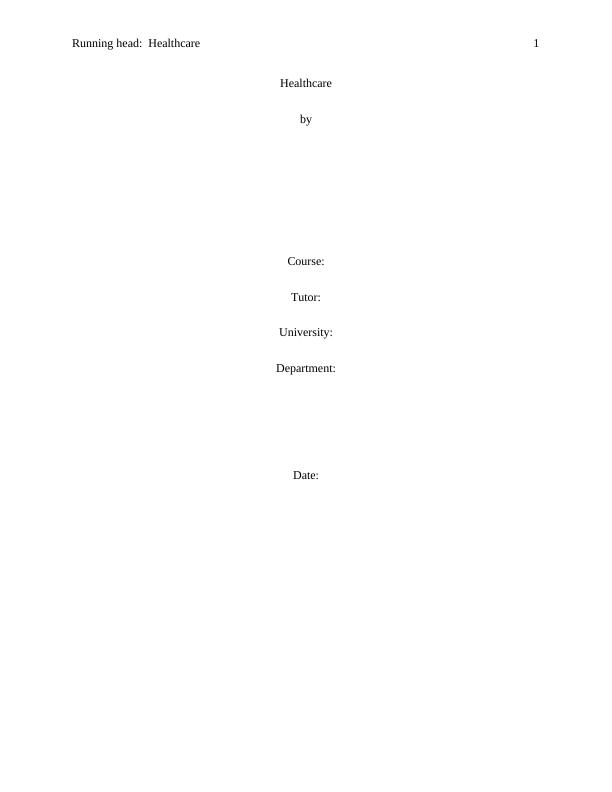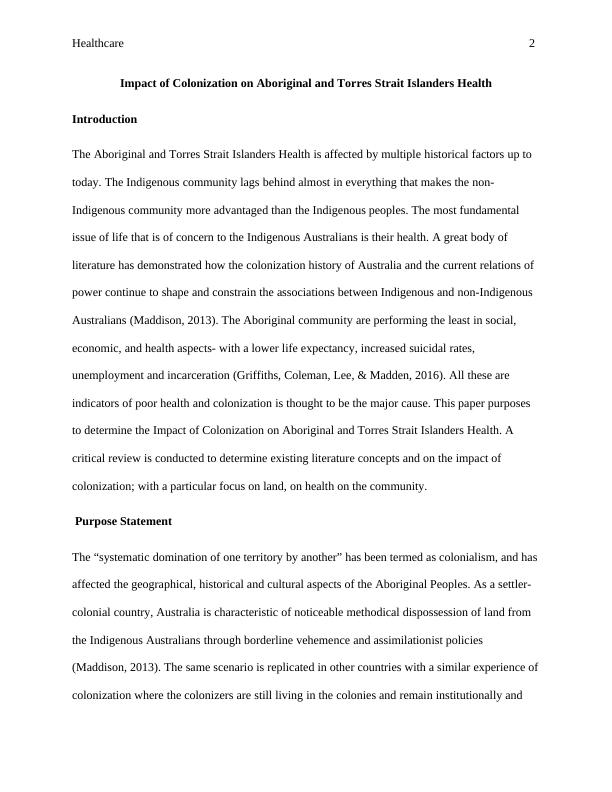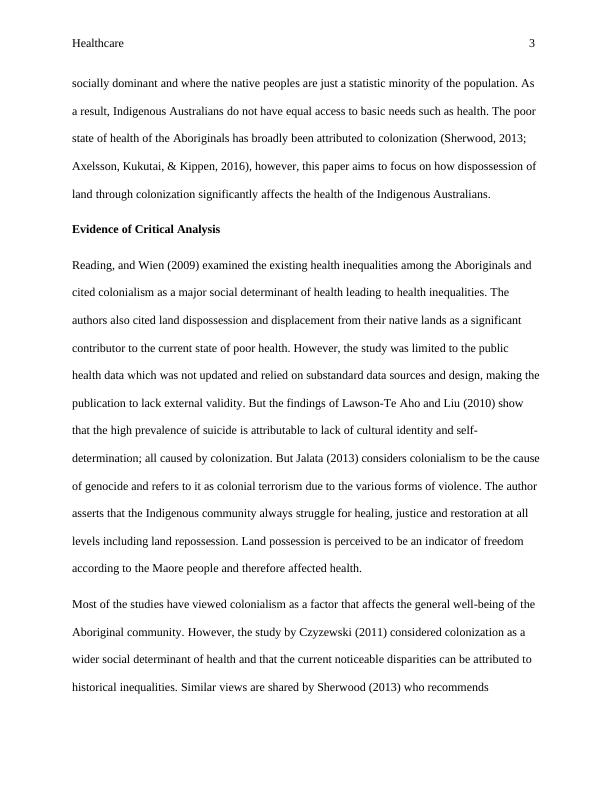Impact of Colonization on Aboriginal Assessment
Write a literature review on the impact of colonization on Aboriginal and Torres Strait Islanders' health.
8 Pages1813 Words14 Views
Added on 2022-10-02
Impact of Colonization on Aboriginal Assessment
Write a literature review on the impact of colonization on Aboriginal and Torres Strait Islanders' health.
Added on 2022-10-02
ShareRelated Documents
End of preview
Want to access all the pages? Upload your documents or become a member.
Indigenous and Non-Indigenous Health Issues in Australia
|11
|3054
|415
Impact of Colonialism on Indigenous Community Health in Australia
|8
|2612
|322
Why Indigenous Peoples Globally Experience Health Disparities
|6
|1388
|12
Australian Healthcare System: Historical and Political Influences and RN Role in Nursing
|10
|2476
|374
Well-being and Prevention in Health - Doc
|10
|2354
|92
Introduction to Indigenous Australians
|7
|2036
|18



